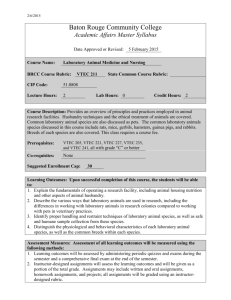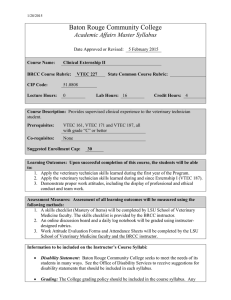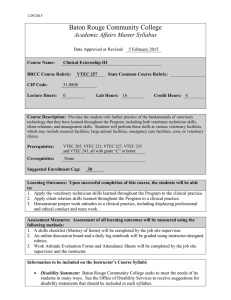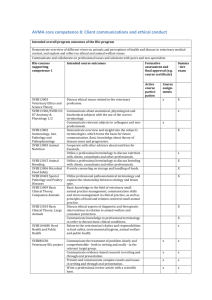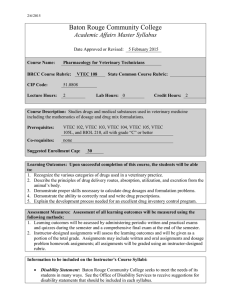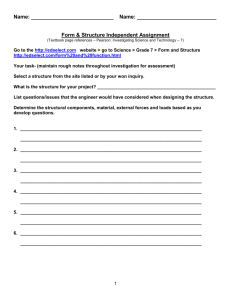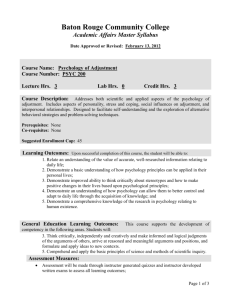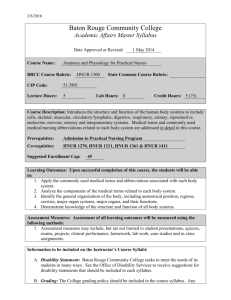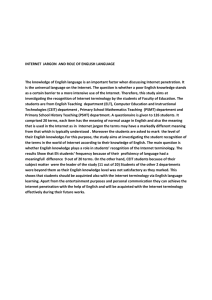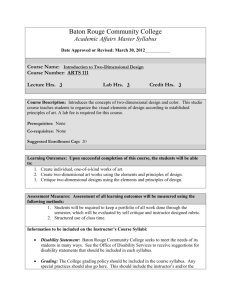VTEC 103 - Baton Rouge Community College
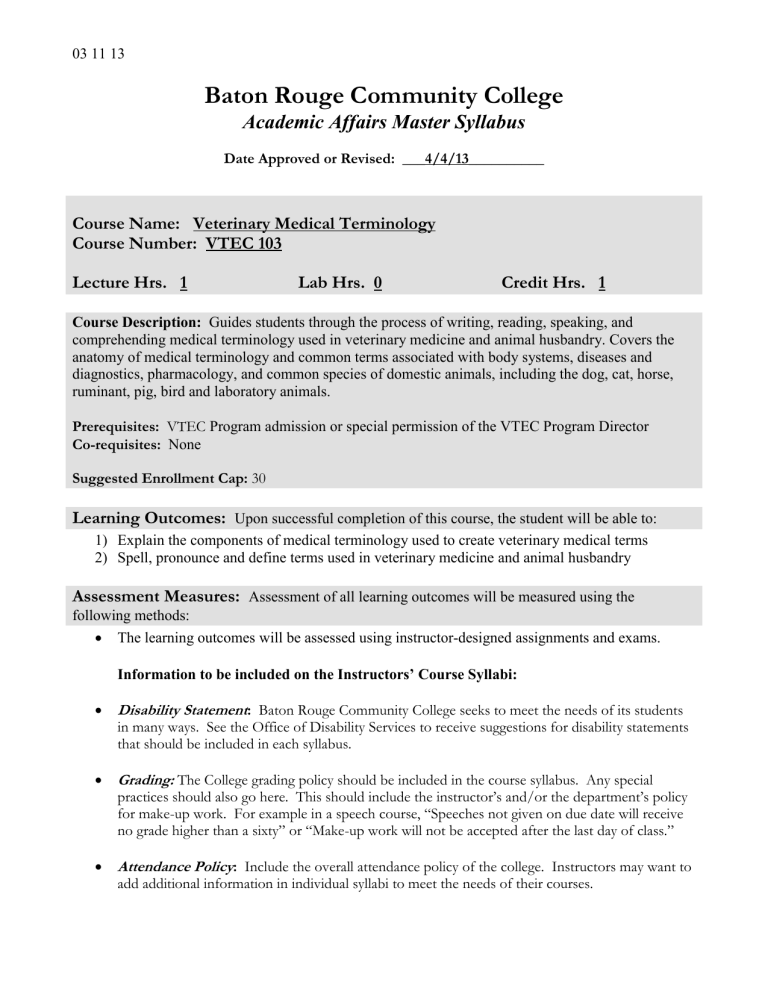
03 11 13
Baton Rouge Community College
Academic Affairs Master Syllabus
Date Approved or Revised: ___4/4/13__________
Course Name: Veterinary Medical Terminology
Course Number: VTEC 103
Lecture Hrs. 1 Lab Hrs. 0 Credit Hrs. 1
Course Description: Guides students through the process of writing, reading, speaking, and comprehending medical terminology used in veterinary medicine and animal husbandry. Covers the anatomy of medical terminology and common terms associated with body systems, diseases and diagnostics, pharmacology, and common species of domestic animals, including the dog, cat, horse, ruminant, pig, bird and laboratory animals.
Prerequisites: VTEC Program admission or special permission of the VTEC Program Director
Co-requisites: None
Suggested Enrollment Cap: 30
Learning Outcomes:
Upon successful completion of this course, the student will be able to:
1) Explain the components of medical terminology used to create veterinary medical terms
2) Spell, pronounce and define terms used in veterinary medicine and animal husbandry
Assessment Measures:
Assessment of all learning outcomes will be measured using the following methods:
The learning outcomes will be assessed using instructor-designed assignments and exams.
Information to be included on the Instructors’ Course Syllabi:
Disability Statement: Baton Rouge Community College seeks to meet the needs of its students in many ways. See the Office of Disability Services to receive suggestions for disability statements that should be included in each syllabus.
Grading: The College grading policy should be included in the course syllabus. Any special practices should also go here. This should include the instructor’s and/or the department’s policy for make-up work. For example in a speech course, “Speeches not given on due date will receive
Attendance Policy: Include the overall attendance policy of the college. Instructors may want to add additional information in individual syllabi to meet the needs of their courses. no grade higher than a sixty” or “Make-up work will not be accepted after the last day of class.”
03 11 13
General Policies: Instructors’ policy on the use of things such as beepers and cell phones and/or hand held programmable calculators should be covered in this section.
Cheating and Plagiarism: This must be included in all syllabi and should include the penalties for incidents in a given class. Students should have a clear idea of what constitutes cheating in a given course.
Safety Concerns: In some programs this may be a major issue. For example, “No student will be allowed in the safety lab without safety glasses.” General statements such as, “Items that may be harmful to one’s self or others should not be brought to class.”
Library/ Learning Resources: Since the development of the total person is part of our mission, assignments in the library and/or the Learning Resources Center should be included to assist students in enhancing skills and in using resources. Students should be encouraged to use the library for reading enjoyment as part of lifelong learning.
Course Outline:
I.
Introduction to Medical Terminology
A.
Base terms
B.
Prefixes, Suffixes and Combining Rules
II.
Terminology of Body Systems
A.
Directional terms and body planes
B.
Musculoskeletal
C.
Integumentary
D.
Cardiovascular and Hematologic
E.
Respiratory
F.
Gastrointestinal
G.
Urogenital
H.
Nervous and Endocrine Systems
I.
Special Senses
III.
Terminology of Diseases, Diagnostics, and Pharmacology
IV.
Species-specific Terminology
A.
Dogs and Cats
B.
Horses
C.
Ruminants
D.
Swine
E.
Poultry and Birds
F.
Lab Animals and Pocket Pets

